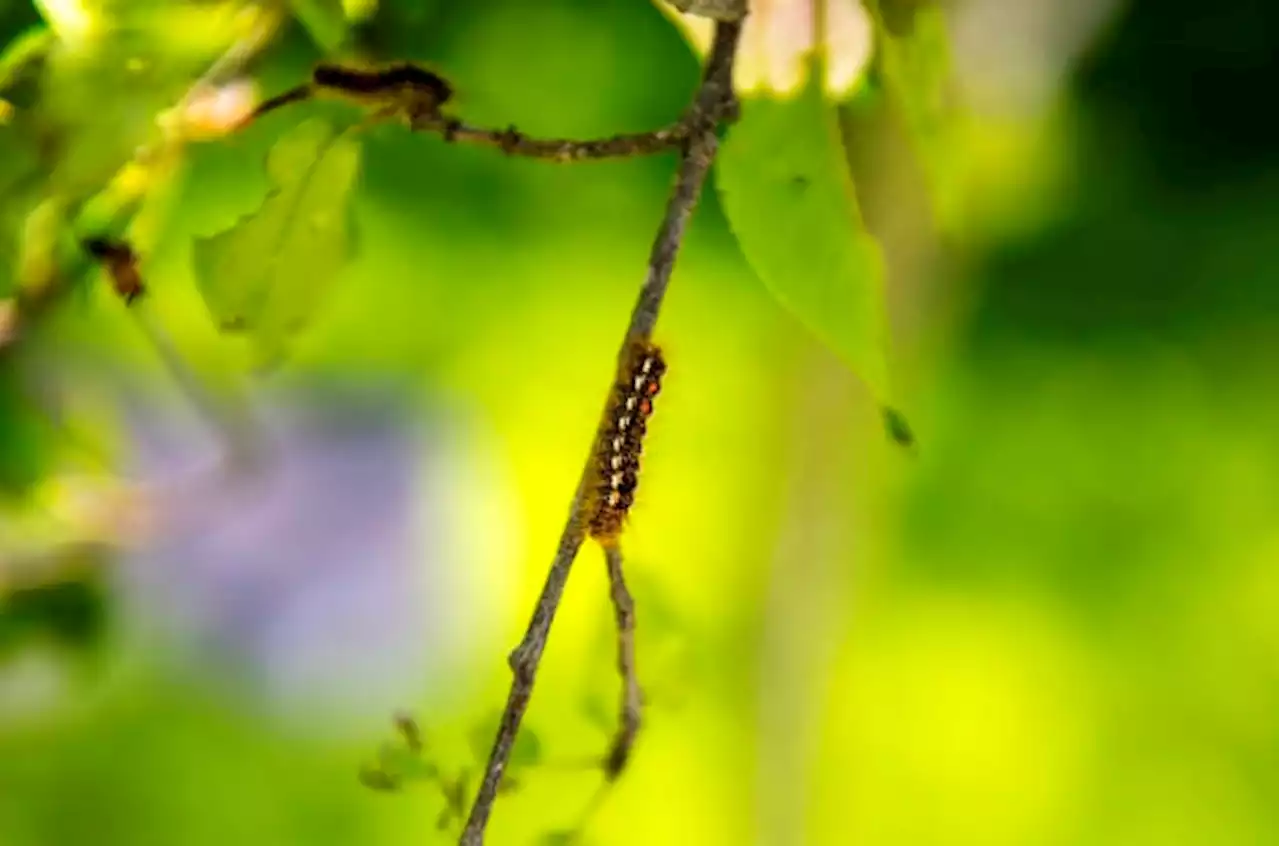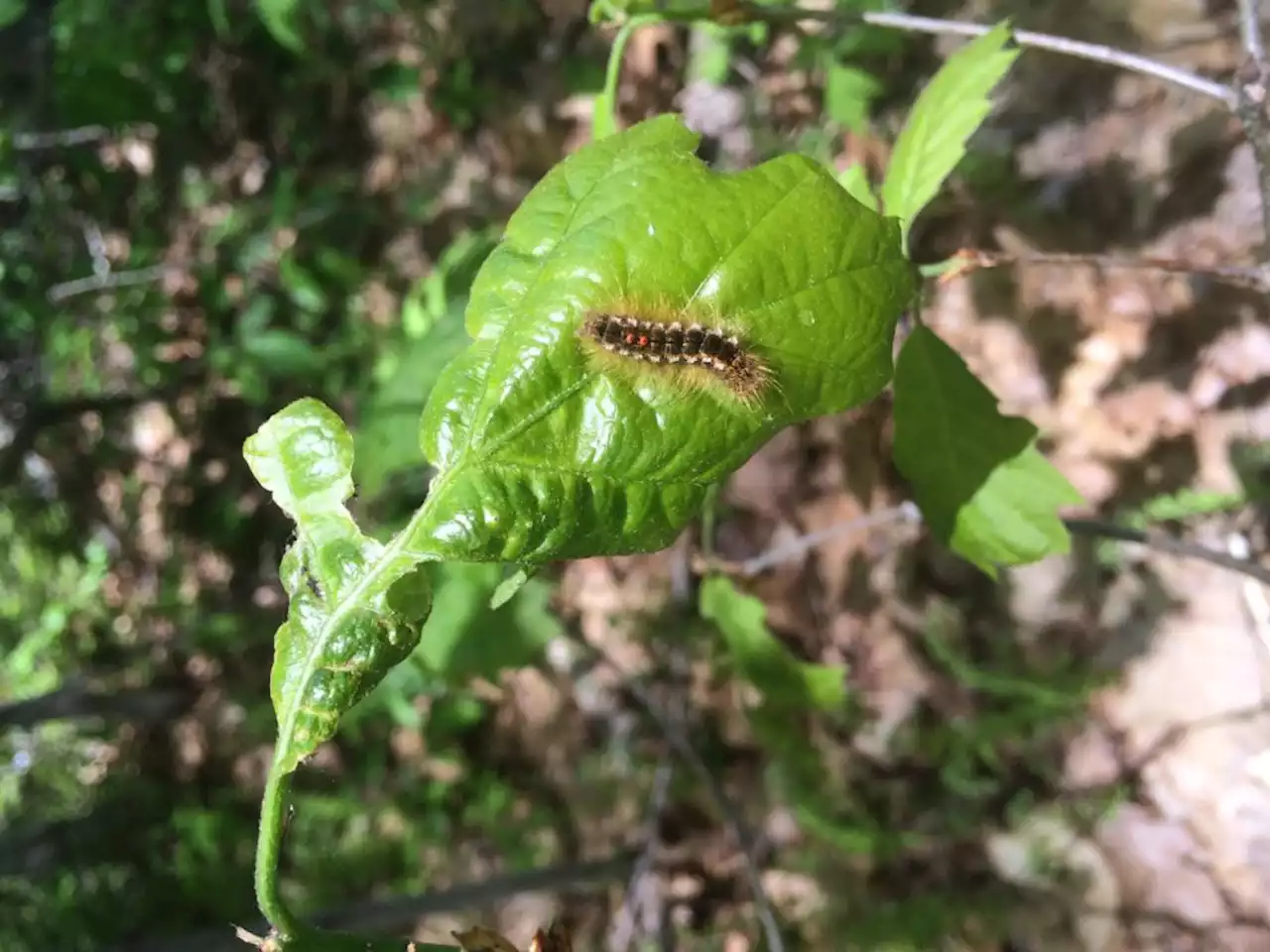A forest pest that bedevils Maine residents and tourists with hairs that cause an itchy rash appears to be spreading due to warming temperatures, a group of scientists has found.
is a scourge in America's most forested state, where it defoliates trees and causes a rash in humans that resembles poison ivy. The hairs of the caterpillars, which have been the subject of an outbreak in the state for about seven years, can also cause respiratory trouble.
"If they come out of those webs as hearty individuals, older individuals maturity wise, then they are better able to withstand that period and you get higher populations," Groden said."And you get defoliation that spring, and populations are raising havoc for anyone who has them in their yards." The study found early fall temperatures are a key determinant of population levels the following year, and thatIt's another example of howcan aggravate pest problems and jeopardize human health, said David Wagner, a professor of ecology and evolutionary biology at the University of Connecticut who was not involved in the study. Climate change has already exacerbated problems with disease-causing pests such as mosquitoes and ticks, he said.
United States Latest News, United States Headlines
Similar News:You can also read news stories similar to this one that we have collected from other news sources.
 Rash-causing moth spreading due to warming, scientists findA forest pest that bedevils Maine residents and tourists with hairs that cause an itchy rash appears to be spreading due to warming temperatures.
Rash-causing moth spreading due to warming, scientists findA forest pest that bedevils Maine residents and tourists with hairs that cause an itchy rash appears to be spreading due to warming temperatures.
Read more »
 Rash-causing moth spreading due to warming, scientists findThe browntail moth is a scourge in Maine, America's most forested state, where it defoliates trees and causes a rash in humans that resembles poison ivy.
Rash-causing moth spreading due to warming, scientists findThe browntail moth is a scourge in Maine, America's most forested state, where it defoliates trees and causes a rash in humans that resembles poison ivy.
Read more »
 Moth that causes rash is spreading due to warming temperatures, scientists findThe browntail moth is a scourge in America's most forested state, where it defoliates trees and causes a rash in humans that resembles poison ivy.
Moth that causes rash is spreading due to warming temperatures, scientists findThe browntail moth is a scourge in America's most forested state, where it defoliates trees and causes a rash in humans that resembles poison ivy.
Read more »
 Rash-causing moth spreading due to warming, scientists findPORTLAND, Maine (AP) — A forest pest that bedevils Maine residents and tourists with hairs that cause an itchy rash appears to be spreading due to warming temperatures, a group of scientists has found.
Rash-causing moth spreading due to warming, scientists findPORTLAND, Maine (AP) — A forest pest that bedevils Maine residents and tourists with hairs that cause an itchy rash appears to be spreading due to warming temperatures, a group of scientists has found.
Read more »
 Rash-causing moth spreading due to warming, scientists findA forest pest - the browntail moth - bedevils Maine residents and tourists with hairs that cause an itchy rash and appears to be spreading due to warming temperatures.
Rash-causing moth spreading due to warming, scientists findA forest pest - the browntail moth - bedevils Maine residents and tourists with hairs that cause an itchy rash and appears to be spreading due to warming temperatures.
Read more »
